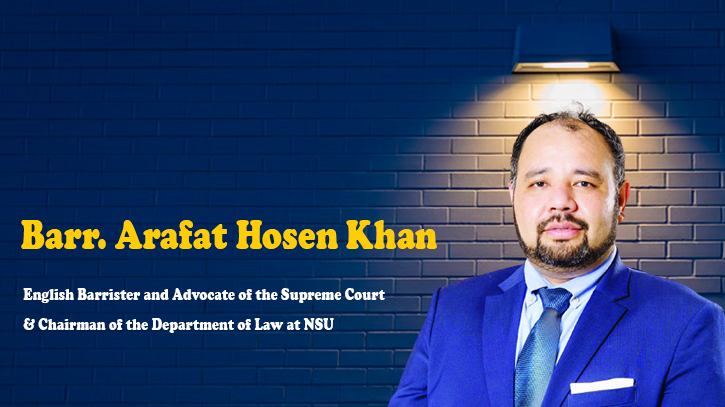
Photo : Messenger
In the labyrinthine realm of Bangladeshi politics, the Bangladesh Nationalist Party (BNP) stands as a beacon of controversy, its trajectory defined by a symbiotic relationship between opportunism and self-interest. From the upper echelons of leadership to grassroots supporters, a web of interconnected interests perpetuates BNP's relevance, despite its tarnished reputation and faltering political fortunes. As we delve into the intricacies of BNP's modus operandi, a nuanced understanding emerges, shedding light on the multifaceted dimensions of political opportunism in Bangladesh.
At the helm of BNP's hierarchy looms the figure of Tareque Zia, a convicted criminal ensconced in the comfort of London. Despite his legal status in Bangladesh, Tareque Zia leads a life of opulence, buoyed by generous donations from domestic and international benefactors. The irony is stark: a fugitive from justice orchestrating political maneuvers from the confines of his London abode, exploiting the vulnerabilities of Bangladesh's political landscape for personal gain. The nexus of financial support from business magnates and the allure of electoral dividends underscores the transactional nature of BNP's leadership, where allegiance is measured in terms of monetary largesse rather than ideological conviction.
The tendrils of BNP's influence extend beyond geographic borders, finding resonance among foreign supporters eager to capitalize on the party's political identity. In London, restaurateurs revel in the patronage of BNP loyalists, leveraging their association with Tareque Zia to bolster their profits. The relocation of BNP's London office to the upper floors of a restaurant epitomizes the convergence of political expediency and commercial interests, where the allure of proximity to power translates into tangible economic gains. For these stakeholders, BNP's predicament isn't a cause for concern but an opportunity for enrichment, as they navigate the intricate interplay of politics and commerce with calculated precision.
Similarly, foreign BNP supporters capitalize on their association with the party as a bargaining chip in the pursuit of asylum and legitimacy. Attendees of Tareque Zia's gatherings in London prioritize photo opportunities over substantive political engagement, weaponizing these snapshots as evidence in their asylum applications. The exploitation of BNP's political identity as a means to an end underscores the pragmatism that underpins the party's support base abroad, where principles are subordinated to personal gain. Likewise, Bangladeshi expatriates leverage virtual platforms to align themselves with BNP's cause, harnessing Zoom calls and social media screenshots as corroborating evidence in their quest for asylum and recognition. In this realm of political expediency, loyalty is transient, contingent upon the utility it affords in navigating the complexities of immigration and legal bureaucracy.
The digital domain emerges as a battleground for competing narratives, with YouTubers and social media influencers capitalizing on BNP's political misfortunes for monetary gain. The proliferation of sensationalist content, replete with false narratives and inflammatory rhetoric, caters to a captive audience hungry for anti-government sentiment. As viewership surges for antigovernment posts, a perverse incentive emerges, incentivizing content creators to peddle misinformation for profit. BNP's political plight becomes fodder for sensationalism, perpetuating a cycle of disinformation that undermines the foundations of democratic discourse and fosters a climate of distrust and polarization.
Closer to home, local BNP leaders navigate the intricacies of Bangladeshi politics with an eye towards personal gain and self-preservation. Media attention becomes a currency for influence, as these leaders bask in the spotlight of controversy, leveraging their association with BNP to further their own agendas. The recent Supreme Court Bar Association Election serves as a microcosm of this self-serving ethos, where monetary favors and backroom deals eclipse the ideals of democratic representation. In this arena of political patronage, the interests of the masses are sacrificed at the altar of personal ambition, as local BNP leaders navigate the murky waters of Bangladeshi politics with impunity.
In conclusion, the persistent presence of BNP in Bangladesh's political arena is not merely a reflection of opportunism and self-interest but a grave threat to democracy itself. From the comfortable exile of Tareque Zia to the grassroots supporters exploiting the party's platform for personal gain, BNP's agenda is diametrically opposed to the democratic values and progress championed under the adept leadership of HPM Sheikh Hasina.
BNP's actions and affiliations suggest a sinister motive aimed at undermining Bangladesh's democratic fabric and sowing the seeds of Islamic extremism. The party's leadership, ensconced in luxury abroad, orchestrates political maneuvers with little regard for the welfare of the nation or its democratic institutions. Instead, they collude with extremist elements, seeking to establish an Islamic fundamentalist state that threatens to unravel the remarkable economic progress achieved under HPM Sheikh Hasina's leadership.
From fostering a culture of corruption and impunity to inciting violence and instability, BNP's agenda poses a clear and present danger to Bangladesh's democratic aspirations and socio-economic development. The party's dalliance with extremism and its relentless pursuit of personal gain at the expense of national interests underscore the urgent need for principled leadership to safeguard the hard-won gains of democracy.
As Bangladesh grapples with the challenges posed by extremism and the erosion of democratic norms, the saga of BNP serves as a cautionary tale. It underscores the imperative of steadfast leadership, committed to upholding the principles of democracy and fostering an inclusive society where all citizens can thrive. In the face of BNP's regressive agenda, the resilience of Bangladesh's democratic institutions and the unwavering resolve of its people to resist extremism and uphold democratic values will ultimately prevail.
Arafat Hosen Khan is a qualified English Barrister and Advocate of the Supreme Court of Bangladesh with extensive experience in Constitutional Law, Politics and Human Rights Law. He is also the Chairman of the Department of Law at North South University, Dhaka, Bangladesh.
Messenger/Fameema








